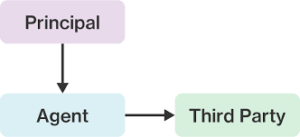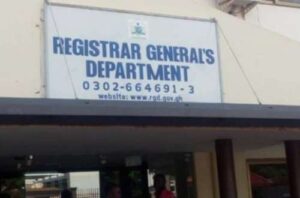 Investment and the Legislative Framework in Ghana: An overview of the Ghana Investment Promotion Centre Act.
Investment and the Legislative Framework in Ghana: An overview of the Ghana Investment Promotion Centre Act.
Introduction
The Ghana Investment Promotion Centre Act, 2013 (Act 865)(hereinafter referred to as “the Act”), is one of the enactments which govern and regulate investments in Ghana. Act 865 retains a crucial role in the investment regime in Ghana for both domestic and foreign investors. This Article navigates and assesses some crucial provisions of this significant piece of legislation as a tool for modelling an investor friendly environment for both citizens and foreign nationals.
The Act applies to enterprises in Ghana and establishes the Ghana Investment Promotion Centre. The Ghana Investment Promotion Centre is a Government agency whose responsibilities and object include:
- The encouragement and promotion of investments in Ghana
- Making provision for an attractive incentive framework and a transparent, predictable and facilitating environment for investments in Ghana.[1]
By the Act, an enterprise means an industry, project, undertaking or business or an expansion of that industry, undertaking, project, or business or any part of that industry, undertaking, project or business.[2]
Establishment of Enterprises
The Act requires that a person who intends to establish an enterprise for the purposes of the Act shall incorporate or register the enterprise in accordance with the Companies Act and other laws that are relevant to the establishment of the enterprise.[3]
This requirement presupposes that to qualify as an enterprise under the Act, an ‘enterprise’ must first be incorporated as a company.[4] A business entity like a partnership or sole proprietorship may not qualify as an enterprise under the Act. In addition to incorporation under the Companies Act, any additional law(s) applicable to the incorporated company would have to be complied with. These laws include special legislation for sectors such as banking, mining, insurance, securities etc.
Registration of Enterprises with the Ghana Investment Promotion Centre (the Centre)
The Act requires that an enterprise with foreign participation as permitted under the Act shall be registered with the Centre.[5] The Act confers some benefits on enterprises. As a result, an enterprise that is registered with the Centre would become entitled to these benefits and guarantees. In furtherance of the registration process, the Act provides that the Centre shall within five working days from receipt of a completed registration form register an enterprise. However, the Centre must be satisfied that:
(i) all the relevant documents for registration are in order:
(ii) the minimum foreign equity capital requirement has been complied with; and
(iii) the fee required for registration has been paid.
While the Act makes it mandatory for an enterprise in which foreign participation is permitted (an enterprise with foreign participation) to register with the Centre, a wholly owned Ghanaian enterprise may or may not register with the Centre. It is also mandatory for an enterprise with foreign participation to renew its registration with the Centre every two years.[6] This is not the case with wholly owned Ghanaian enterprises.
Activities reserved for Ghanaians and Ghanaian owned enterprises
The Act reserves some investment enterprises for only Ghanaians. Accordingly, a person who is not a citizen of Ghana or an enterprise which is not only owned by a Ghanaian citizen cannot participate. These enterprises include:[7]
- the sale of goods or provision of services in a market, hawking, selling of goods in a stall at any place;
- The operation of taxi or car hire service in an enterprise that has a fleet of less than twenty-five vehicles;
- The operation of a barber shop
- The operation of a beauty salon
- the printing of recharge scratch cards for the use of subscribers of telecommunication services;
- the production of exercise books and other basic stationery;
- retail of finished pharmaceutical products
- the production of sachet water;
- supply of sachet water;
- retail of sachet water; and
- all aspects of pool betting business and lotteries, except football pool.
The Minister designated by the president to be in charge of the Centre has been conferred with the discretion to amend the list.
The wording of (b) above, suggests that a non-citizen or an enterprise with foreign participation can operate a car hire service if the enterprise has a fleet of up to twenty-five vehicles or more. The Act defines a finished pharmaceutical product as used in (g) above to mean any chemical substance or product meant for the consumption of the end user.
Enterprises eligible for foreign participation – Section 28 of the Act
Notwithstanding that the Act reserves some enterprises for Ghanaian citizens, the Act permits foreign participation in some other enterprises subject to a minimum foreign capital requirement. As a result, a person who is not a citizen of Ghana is eligible to participate in an enterprise other than those identified above if the person meets the following requirements:
- invests a foreign capital of not less than two hundred thousand (USD 200,000.00) United States Dollars in the case of a joint enterprise with a partner who is a citizen. This amount could either be in cash or capital goods relevant to the investment or a combination of both cash and capital goods. The partner who is a citizen should not have less than ten per cent (10%) equity participation in the enterprise.
- where the enterprise is wholly owned by that person (foreign investor), the person invests a foreign capital of not less than five hundred thousand (USD 500,000.00) United States Dollars in cash or capital goods or a combination of both by way of equity capital in the enterprise.
To engage in a trading enterprise, a person who is not a citizen of Ghana must invest in the enterprise not less than one million (USD 1,000,000.00) United States Dollars either in cash or goods and services. The said enterprise is required to employ at least twenty skilled Ghanaians. Trading in this context includes the sale and purchase of imported goods and services: Section 28 of the Act.
Section 28(a) of the Act does not seem to use the word ‘partner’ in terms envisaged by the Incorporated Private Partnership Act, 1962 (Act 152). Act 152 defines a partnership as the association of two or more individuals carrying on business jointly for the purpose of making profits. It further provides that an association of members is not a partnership if it is , among others, a company, body corporate, or unincorporated association formed under any enactment. This exception to a partnership under Act 152 suggests that an enterprise registered as a company in accordance with the Companies Act would not be a partnership in the legal sense of the word in Ghana.
It is worth noting that the minimum foreign capital requirement does not apply to the foreign spouse of a citizen of Ghana. The exception would however apply to these persons provided that:
- the foreign spouse is or has been married to a citizen of Ghana for a minimum period of five years continuously
or
holds an indefinite resident permit before the registration of an enterprise ;
- The marriage has been verified to be valid; and the foreign spouse is ordinarily resident in Ghana.
Also, a Ghanaian citizen who loses their citizenship by reason of becoming a citizen of another country shall not be subject to the minimum capital requirement.
Exemption from the minimum capital requirement
The minimum capital requirement referred to above does not apply to investment categories. They include:
- investment in shares or bonds which are mandatorily convertible into shares or other securities traded on the Ghana Stock Exchange; or
- an enterprise set up solely for export trading and manufacturing.[8]
Investment Guarantees
The Act guarantees a stable and enabling environment for investments to thrive. It assures a level playing ground for both foreign investors and citizens. Accordingly, a foreign investor, employer or worker is entitled to the same rights and subject to the same duties and obligations applicable to citizens of Ghana. The Centre shall not discriminate against an investor from a particular country or give special treatment to a prospective foreign investor based on that investor’s country of origin or nationality. A foreign investor shall be subject to the same laws that apply to domestic enterprises, in relation particularly to:
- licences or permits that are required of enterprises for conducting specific business activities
- maintenance of business books and records in accordance with the recognized accounting standards
- insurance requirements applicable to similar enterprises; and
- taxes required to be paid by enterprises engaged in similar activity.[9]
This is a prohibition against discrimination. Subject to the Constitution of the Republic of Ghana or any other law, including the Act, no enterprise shall be nationalized or expropriated by the Government of Ghana. Additionally, a person who owns, wholly or in part, the capital of an enterprise shall not be compelled by law to cede that person’s capital to another person.
The above provision to the effect that a person shall not be compelled by law to cede that person’s capital to another person, resonates with the constitutional right of all persons in Ghana at any given time. However, it is doubtful that the provision would operate to bar an execution of a judgment of a court of competent jurisdiction against an enterprise or partner of an enterprise (judgment debtor).
Section 31 (2) of the Act provides as follows:
“(2)The Republic shall not acquire an enterprise to which this Act applies unless the acquisition is in the national interest or for a public purpose and the acquisition is done under a law which makes provision for
- payment of fair and adequate compensation, and
- a right of access to the High Court for the determination of the investor’s right or interest and the amount of compensation to which that investor is entitled.”
The above provision in section 31 of the Act, is akin to Article 20 of the Constitution, 1992, on compulsory acquisition by the state, and does not confer a right of appeal from the High Court if a party is dissatisfied with what the High Court determines as adequate compensation for the acquisition of an enterprise.
The Act guarantees enterprises unconditional transferability in freely convertible currency of
- dividends or net profits attributable to the investment made in the enterprise;
- Payments in respect of loan servicing where a foreign loan has been obtained;
- fees and charges in respect of a technology transfer agreement registered under the Act; and
- The remittance of proceeds, net of all taxes and other obligations, in the event of sale or liquidation of the enterprise or any interest attributable to the investment in the enterprise.[10] These guarantees are however subject to the Foreign Exchange Act, and made and/or exercised through an authorised dealer bank.
Dispute Resolution procedures
The Act makes special room for the settlement of disputes that may arise between an investor and the Government of Ghana. The Act requires that efforts shall be made to reach an amicable settlement in any dispute relating to an enterprise. Where a dispute in respect of an enterprise to which the Act applies is not settled through mutual discussions within six months, an aggrieved party has the option to submit the dispute to arbitration in any of the following ways:
- in accordance with the rules of procedure for arbitration of the United Nations Commission of International Trade Law; or
- in the case of a foreign investor, within the framework of any bilateral or multilateral agreement on investment protection to which the Government of Ghana and the country of which the foreign investor is a national are parties; or
- In accordance with any other national or international machinery for the settlement of investment disputes agreed to by the parties.
It is important to note that Ghana has signed and ratified the Convention on the Recognition and Enforcement of Foreign Arbitral Awards (New York, 1958), thus making Ghana receptive to recognition and enforcement of an arbitral award given to a party in a member state anywhere in the world. This gives a foreign investor in Ghana the latitude to explore a broad spectrum of avenues to seek redress without fear of issues of recognition and/or enforcement in Ghana.
Technology Transfer Agreements
As part of the functions of the Ghana Investment Promotion Centre, the Centre is required by the Act to register and keep records of all technology transfer agreements.[11] By section 37 of the Act, an enterprise may enter into a technology transfer agreement that the enterprise considers appropriate for the enterprise. The Centre shall on registration of an agreement, monitor and ensure compliance with the terms and conditions of the agreement.
Technology Transfer Agreement means an agreement with an enterprise which involves
- the assignment, sale and licensing of all forms of industrial property, except trademarks, service marks and trade names when they are not part of transfer of technology;
- the provision of technical expertise in the form of feasibility studies, plans, diagrams, models, instructions, guides, formulae, basic or detailed engineering designs, specifications and equipment for training, services involving technical advisory and managerial personnel and personnel training;
- the provision of technological knowledge necessary for the installation, operation and functioning of the plant and equipment, and turnkey projects; and
- the provision of technological knowledge necessary to acquire, install and use machinery, equipment, intermediate goods or raw materials which have been acquired by purchase, lease or other means.
The Act operates together with the Technology Transfer Regulations, 1992 (L.I. 1547) to regulate the application of technology transfer agreements in Ghana. The provision for technology transfer agreements under the Act and L.I. 1547, reinforces Ghana’s quest to establish an investor-friendly and flexible environment that is in constant motion with the global technological evolution. By these provisions, an enterprise established in Ghana can access or benefit from intellectual property rights (services) of persons and/or other enterprises that are not readily available in Ghana. The technology transfer regime under the Act, therefore, is a strategic tool for sustaining enterprises established in Ghana’s developing economy.
Offences
A person commits an offence under the Act if that person
(i) is required by the Act to register with the Centre but fails to register or renew a registration with the Center;
(ii) engages in an activity other than an activity for which that enterprise has been registered under the Act
(iii) applies any benefit conferred by or under the Act for purposes other than the purpose for which the benefit was conferred
(iv) refuses or neglects to give any information which the Centre reasonably requires for the purpose of the Act
(v) refuses without lawful excuse to admit an officer or a designated agent into the premises of that enterprise or otherwise obstructs an officer or a designated agent of the Centre in the performance of the functions of the officer or the designated agent;
(vi) deliberately or negligently submits false or misleading information to the Centre
(vii) lets out a stall or store in a market to a foreigner; or
(viii) otherwise contravenes a provision of the Act.[12]
Penalties
An enterprise which commits an offence under the Act is liable on summary conviction to a fine of not less than five hundred five hundred penalty units and not more than one thousand penalty units and in the case of a continuing offence to an additional fine of not less than twenty five penalty units and not more than fifty penalty units in respect of each day that the offence continues. One penalty unit is equivalent to GHS 12.00 as of February, 2023. Other penalties such as suspension of registration of an enterprise, cancellation of registration of an enterprise etc may apply in addition to those mentioned above.[13]
Conclusion
The Ghana Investment Promotion Centre Act remains a significant piece of legislation that seeks to make Ghana a great destination for investors. The Act continues to hold a central place in making Ghana an investment hub in West Africa and the world at large.
It is respectfully submitted that, the minimum capital requirement of USD 500,000.00 for wholly owned foreign enterprises, constitutes a huge disincentive to foreign investment in Ghana. A foreign investor who is unable to start a business in Ghana with this amount may either find an alternative destination for their investment or be compelled by the circumstances to find a Ghanaian business partner. This Ghanaian business partner, in many cases, may only exist in books. This challenge is more realistically represented by the fact that the Act does not circumscribe what would constitute a partnership with a Ghanaian enterprise. Must the Ghanaian partner be seen to actively play some role(s) in the administration of the enterprise, or mere mention in books would suffice the partnership envisaged by the Act? It is submitted that an amendment of the Act by a downward adjustment of the minimum requirement for wholly owned foreign enterprises, while still keeping the cap reasonable, would not only make Ghana more attractive to foreign investors, the temptation to ‘beat’ the system in this regard would be forestalled thereby promoting transparency among investors.
Some of the greatest strengths of the Act include the guarantees against interference by government with the affairs of an enterprise established in Ghana, and the clear choice of arbitration as a favourable mechanism of dispute resolution under the Act.
The language of the Act is not too technical, thus lending itself significantly to an ordinary reading and understanding. This notwithstanding, regulated and compliance aspects of the enterprise such as technology transfer agreements and their content, the special requirements of sectors such as mining, banking, insurance, financial and securities, the nuanced registration and renewal processes, continue to make lawyers essential actors in the success story of an enterprise under the Act.
[1] Long Title; Section 3, Act 865.
[2] Section 43.
[3] Section 23.
[4] A company in Ghana may be a company limited by shares, a company limited by guarantee, an unlimited company or an external company. An enterprise under Act 865 may not be registered as a company limited by guarantee as a result of the legislative restriction on the profit making adventures of this type of company.
[5] Section 24 of the Act.
[6] Section 24(3) of the Act.
[7] Section 27 of the Act.
[8] Section 29 of the Act
[9] Section 30 of the Act.
[10] Section 32
[11] Section 4(f)
[12] Section 40
[13] Section 41
Author: Gideon Bilsilki Esq.
Nartey Law Firm is a leading corporate and commercial law firm in Ghana providing legal services to individuals, domestic and international businesses. Ensuring the success of our clients’ objectives is at the core of what we do. Comprised of a dedicated team of lawyers with extensive experience in corporate, commercial and international law and litigation, we pride ourselves with the diligent execution of all client matters, whilst guaranteeing an uncompromising standard with respect to excellence in service delivery. Some of our focus areas are Real Estate, Trade and Commerce, Banking and Finance, Regulatory Advisory, Capital Markets and Mergers and Acquisitions.
CONTACT:
NARTEY LAW FIRM
TEL: +233 (0)553508582
Email:info@narteylaw.com
Disclaimer: This publication is for information purposes only and is not intended to constitute legal advice. If you require information on any matter discussed in this article, kindly reach out to the firm directly.

 PATENT REGISTRATION IN GHANA
PATENT REGISTRATION IN GHANA




